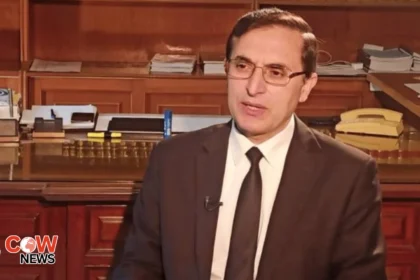ISLAMABAD ( The COW News Digital) The International Monetary Fund (IMF) has decided to conduct a comprehensive review of the tax exemptions granted to Pakistan’s multi-billion-dollar Reko Diq copper and gold mining project, officials confirmed on Sunday. The move comes as part of the ongoing talks between Pakistan and the IMF, which have entered their second week.
According to sources close to the negotiations, the IMF has sought detailed briefings on tax exemptions and fiscal incentives across multiple sectors, including mining, exports, and imports. Particular emphasis has been placed on the Reko Diq project, considered one of the largest untapped copper and gold reserves in the world.
Officials from Pakistan’s Ministry of Finance are expected to present a detailed analysis to the IMF team this week, covering the project’s macroeconomic impact, financing structure, and implications for both domestic and foreign investment. “The IMF delegation is keen on understanding how tax breaks and exemptions under the Reko Diq agreement will affect Pakistan’s long-term revenue streams and fiscal stability,” said one government source.
The IMF is also reported to be examining the implications of exemptions on royalties and guarantees tied to the project. Fiscal risks associated with these arrangements will be a key part of the review, as the lender pushes Islamabad to strengthen its revenue base and reduce dependency on borrowing.
In addition to Reko Diq, the IMF has requested updates on other fiscal measures, including sugar exports and subsequent imports, which officials say will also be addressed in the upcoming sessions. The IMF is particularly focused on how such tax exemptions may reduce Pakistan’s overall tax collection, thereby impacting the country’s fiscal consolidation efforts.
Economic analysts note that while tax incentives for mega-projects like Reko Diq can attract foreign investment and accelerate development, they also raise concerns about lost revenue opportunities for a cash-strapped economy. “The IMF’s scrutiny is aimed at ensuring Pakistan strikes the right balance between encouraging investment and safeguarding its fiscal health,” said Dr. Asad Khan, an Islamabad-based economist.
Negotiations with the IMF are expected to continue into next week, with both sides seeking common ground on tax reforms, revenue generation, and structural adjustments required under the current loan program. A clearer picture of the IMF’s stance on Reko Diq-related exemptions is likely to emerge once the technical review concludes.







